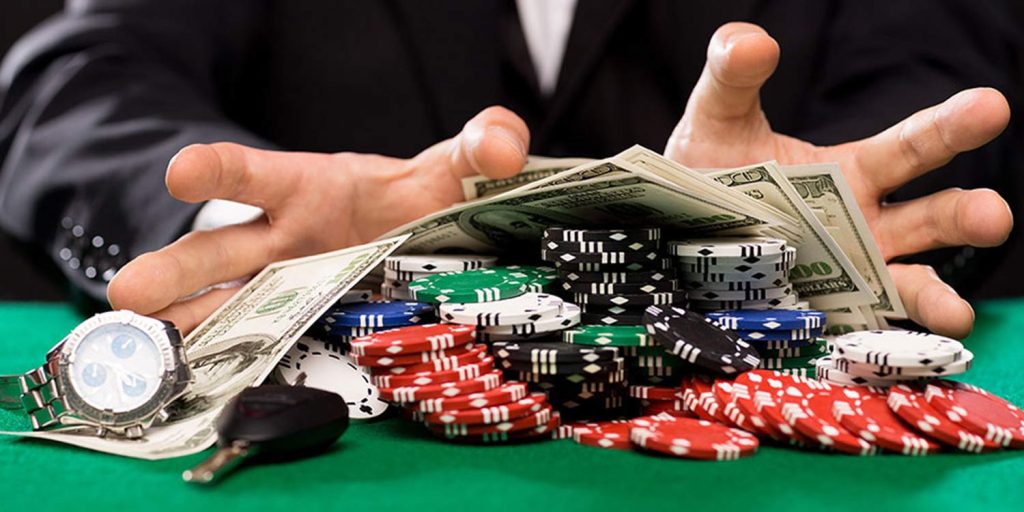
 Gambling Addiction
Gambling Addiction Gambling addiction is a pervasive issue that affects a significant number of individuals, often leading to long-lasting negative consequences. It is crucial to delve into the underlying factors that make gambling addictive in order to comprehend the complexities of this behavioral disorder. By understanding the science behind gambling addiction, we can shed light on its mechanisms and help those in need of support. In this comprehensive article, we will explore the various facets of gambling addiction, including its impact on the brain, genetic and psychological predispositions, the development of tolerance, and the psychological factors that contribute to its perpetuation.
The Intricacies of Gambling Addiction
Gambling, for many individuals, serves as a recreational activity that combines risk and reward, providing a fleeting sense of excitement and pleasure. It is often enjoyed as a social experience, whether through betting on sports or engaging in friendly poker games. However, when individuals become engrossed in excessive gambling, their brain chemistry undergoes significant changes, leading to the development of addiction. It is important to note that gambling addiction is no longer considered merely a compulsion driven by the need to relieve anxiety; it is now recognized as an addiction similar to substance addiction.

Is Gambling Addictive
The Brain’s Reward System
To comprehend gambling addiction, it is crucial to understand the brain's reward system and its role in pleasurable experiences. Our brain consists of interconnected circuits known as the reward system, which encompasses various regions, particularly those responsible for pleasure and motivation. When we engage in enjoyable activities such as receiving compliments, accomplishing tasks, having sex, or winning games, our brain releases neurotransmitters, specifically dopamine, which acts as the main neurotransmitter within the reward system. The release of dopamine generates feelings of euphoria, pleasure, and motivation, reinforcing the desire to repeat the activity.
The Similarities with Substance Addiction
Research and studies examining the effects of gambling on the brain have revealed striking similarities between gambling addiction and substance addiction. Gambling activates the brain's reward system by releasing a higher amount of dopamine, akin to the effects of drugs. This initial surge of dopamine is what attracts people to gambling, as it provides a highly rewarding experience. However, individuals who eventually develop gambling addiction possess certain genetic or psychological predispositions that render them more susceptible to excessive gambling.

Play Responsible
Genetic and Psychological Predispositions
Studies have demonstrated that problem gamblers and drug addicts often share genetic predispositions for reward-seeking behaviors and impulsivity. Two significant factors come into play: an underactive brain reward system and less activation of the prefrontal cortex.
- Underactive Brain Reward System: Individuals with an underactive brain reward system do not experience the same level of euphoria and pleasure from naturally rewarding experiences as the average person. Consequently, they are drawn to activities that stimulate reward pathways more intensely, such as taking drugs or engaging in excessive gambling.
- Reduced Activation of the Prefrontal Cortex: The prefrontal cortex, responsible for decision-making, impulse control, and cognitive functioning, exhibits less activation in problem gamblers and drug addicts. This reduced activation makes it significantly more challenging for them to control their impulses and make decisions that consider the long-term consequences of their actions. Impulsivity becomes inherent in their nature, making it harder to resist the allure of gambling.
The Development of Tolerance
Similar to the concept of tolerance in drug addiction, individuals who engage in excessive gambling build up a tolerance over time. When the brain is repeatedly overstimulated by excessive gambling, it initiates a defensive response, making the reward system less efficient. This reduced efficiency is characterized by a decrease in the number of dopamine receptors, resulting in diminished pleasure and euphoria. Consequently, individuals who develop tolerance can no longer experience the same dopamine-induced highs they once did, necessitating greater involvement in gambling to maintain their desired level of satisfaction.
Addiction as the New Norm
As tolerance develops and dopamine receptors continue to decrease, individuals with gambling addiction find themselves in a precarious situation. The dopamine deficit leads to withdrawal symptoms and depression when the stimulant (gambling) is absent. In an attempt to avoid these unpleasant side effects and maintain their "new normal," individuals with gambling addiction become trapped in a cycle where excessive gambling is necessary. At this stage, the brain undergoes long-term alterations in its reward system, solidifying the addiction.

How Not to Become Addicted
The Compounding Psychological Factors
In addition to genetic and neurochemical factors, several psychological elements contribute to the progression of gambling addiction. These factors further compel individuals to continue gambling, even when it becomes detrimental to their well-being. Let's explore five key psychological factors:
- Partial Reinforcement: Gambling addiction often stems from the phenomenon of partial reinforcement. Individuals continue to gamble because they are aware of the chance of winning, even though losses are a regular occurrence. They perceive losses as part of the process and maintain hope that they will eventually be rewarded. The intermittent reinforcement experienced during gambling motivates them to persist.
- Availability Heuristic: The availability heuristic comes into play when individuals overestimate the likelihood of winning based on immediate examples that come to mind. Exposure to news stories about lottery winners or witnessing others' significant wins can skew their perception of their own chances of winning. They believe their odds are more favorable than they actually are.
- Gambler's Fallacy: The gambler's fallacy is a common cognitive bias wherein individuals believe that the chances of winning increase after a series of losses. However, each gambling event is an independent occurrence, and chance does not operate based on predetermined patterns. Despite this, individuals with gambling addiction often succumb to the fallacy and believe that their luck will inevitably change, perpetuating their gambling behavior.
- Illusion of Control: Many gamblers mistakenly believe that they possess some level of control over chance. Although certain games involve decision-making, chance remains the primary determinant of success or failure. Humans naturally crave control, and the unpredictability of gambling can lead individuals to convince themselves that they can exert influence over the outcome. Rituals like throwing dice in a specific manner or wearing "lucky" items become a means to regain a sense of control.
- Loss Aversion: Human psychology dictates that losses have a more profound impact than gains of equal value. Gamblers are particularly sensitive to losses, leading them to invest more time and money in an attempt to recoup previous losses. This desire to "make up" for losses perpetuates the cycle of addiction, transforming the pursuit of winning into a desperate attempt to avoid the negative emotions associated with loss.
Recognizing and Addressing Gambling Addiction
Gambling addiction often accompanies denial and distorted perceptions of reality, making it challenging for individuals to recognize the severity of their problem. However, it is crucial to acknowledge the signs and symptoms of gambling addiction and seek appropriate support. Recognizing the intricate interplay between genetic predispositions, brain chemistry, and psychological factors is essential in comprehending the complexity of this disorder.
If you suspect that someone you know may be struggling with a gambling addiction, it is vital to provide them with information and resources. Numerous online platforms offer guidance on identifying problem gamblers and provide support to those in need. Remember, any addiction can be overcome, and with the right assistance, individuals can regain control of their lives.
Conclusion
In conclusion, understanding the science behind gambling addiction is crucial for addressing and combating this pervasive issue. Gambling addiction shares similarities with substance addiction, as it alters the brain's reward system, leading to a cycle of tolerance, dependence, and compulsive behavior. Genetic and psychological predispositions contribute to an individual's susceptibility to gambling addiction, including an underactive brain reward system and reduced prefrontal cortex activation.
Furthermore, psychological factors such as partial reinforcement, the availability heuristic, the gambler's fallacy, the illusion of control, and loss aversion play a significant role in perpetuating gambling addiction. These factors combine with genetic and neurochemical influences, making it challenging for individuals to recognize the severity of their problem.
Recognizing the signs of gambling addiction and seeking support is crucial. There are resources available online to help identify problem gamblers and provide assistance to those in need. With the right information, guidance, and support, individuals struggling with gambling addiction can embark on a path to recovery and regain control of their lives.
Frequently Asked Questions (FAQ)
How common is gambling addiction?
Gambling addiction is more prevalent than one might think. It affects a significant number of individuals worldwide, with varying degrees of severity.
Can gambling addiction be considered an addiction similar to substance addiction?
Yes, gambling addiction is now recognized as an addiction akin to substance addiction. It shares similarities in terms of brain chemistry, reward pathways, and compulsive behaviors.
Are there genetic factors that contribute to gambling addiction?
Research suggests that genetic predispositions play a role in gambling addiction. Some individuals may have a higher likelihood of engaging in reward-seeking behaviors and impulsivity, making them more susceptible to developing gambling addiction.
How does excessive gambling affect the brain?
Excessive gambling leads to significant alterations in the brain's reward system. The release of dopamine, the main neurotransmitter associated with pleasure, becomes dysregulated, leading to tolerance, withdrawal symptoms, and a compulsive need to continue gambling.
What are the psychological factors that contribute to gambling addiction?
Psychological factors such as partial reinforcement, the availability heuristic, the gambler's fallacy, the illusion of control, and loss aversion contribute to the perpetuation of gambling addiction. These factors affect individuals' perception of their chances of winning and their belief in exerting control over chance.
Can gambling addiction be overcome?
Yes, gambling addiction can be overcome with the right support, guidance, and treatment. Recognizing the problem and seeking professional help are crucial steps toward recovery.
Where can I find help for gambling addiction?
Various online resources, support groups, and helplines are available to assist individuals struggling with gambling addiction. It is important to reach out to specialized organizations and professionals who can provide the necessary support and guidance.